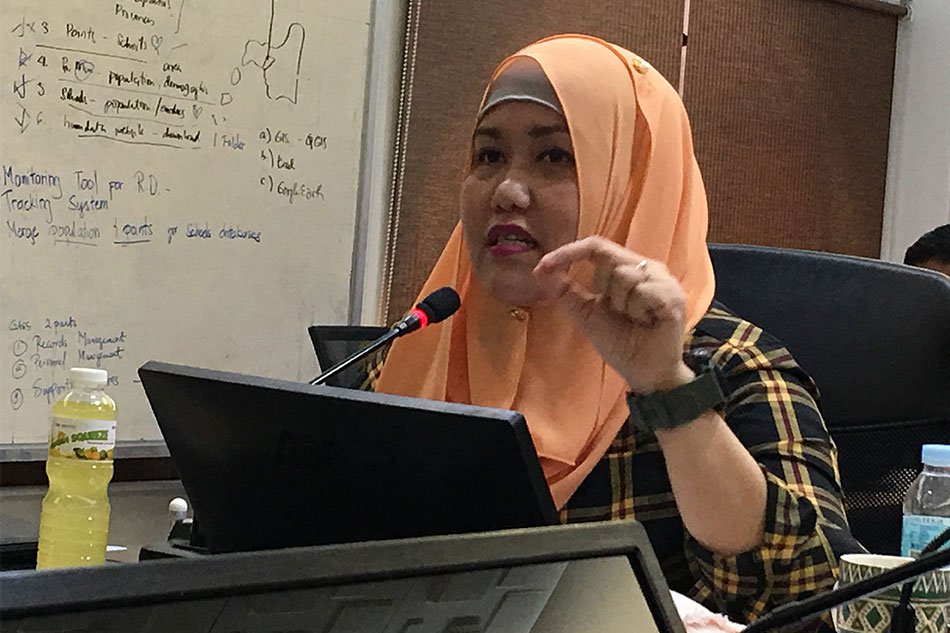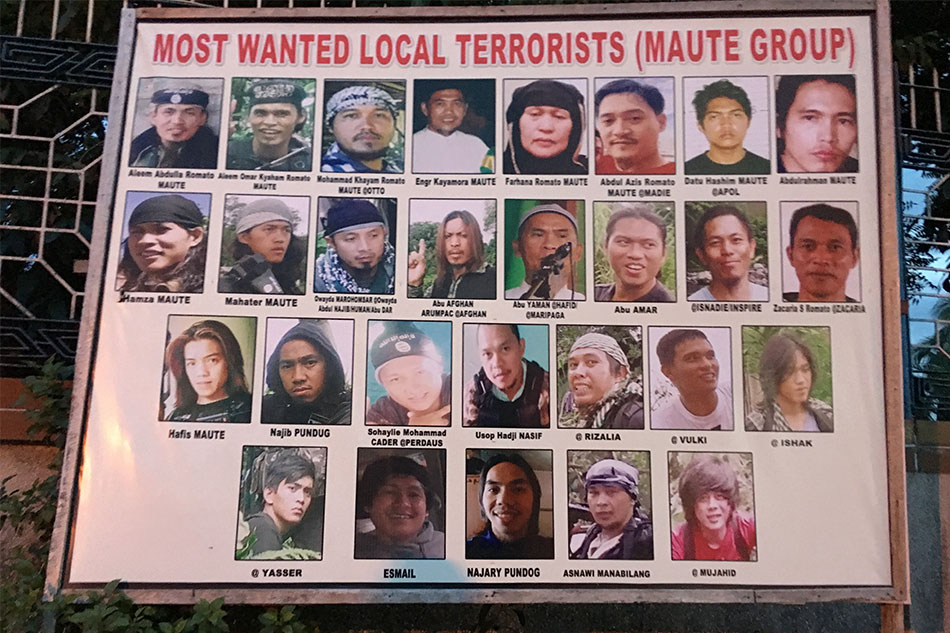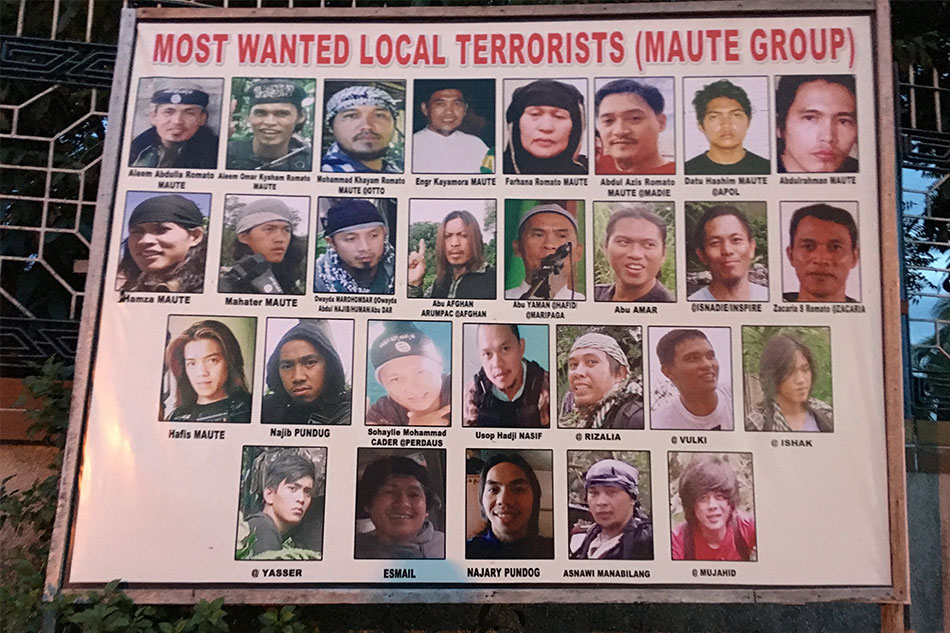MANILA – Philippine officials are looking at protecting the youth, seen as easy converts via indoctrination, and are vulnerable to the lure of quick money, from violent extremism where episodes such as the Marawi City siege draw inspiration from.
“Of course, we are worried about that. We noticed this. The regional government has noticed this. It is creeping, it wasn’t sudden. Some of the elements of violent extremism and terrorism have been present already before in ARMM [Autonomous Region in Muslim Mindanao] and in some surrounding areas,” said Atty Laisa Alamia, ARMM regional governor executive secretary, in a conversation with international journalists on September 22 in the ARMM office in Cotabato City.

At the time, the Marawi battles were still raging. Alamia was asked about what possibly fuels the recruitment of young people into violent extremism.
“All of the elements and the poverty level… although it has been decreasing in the past years, but still it is high. All of these ingredients are present and ripe for a terrorist organization like the ones who are in Syria to actually come in and take advantage of the situation. All they have to do is bring money. It is not purely ideological,” Alamia said.
Alamia was referring to ties reported between extremist elements in the southern Philippines, and in southeast Asia, who have allegedly been inspired by or were responding to calls from the Islamic State or ISIS.

Violent extremism recruitment in the southern Philippines has seen southeast Asian fighters traveling there. These fighters have also traveled to southern Thailand, and to Rakhine in Myanmar. This has been worrying Malaysia and Indonesia, an academic said last month, echoing US officials’ information that ISIS recruitment for fighters in the Philippines continues.
Indonesian and Malaysian fighters were in Marawi, local security officials have been saying. After the fall of Marawi siege masterminds, the military said they chased a Malaysian terrorist, Mahmud bin Ahmad, who possibly funded the siege of the city.
On Thursday, President Rodrigo Duterte said Ahmad was killed.
A MATTER OF LIVELIHOOD
Radicalization used to be a matter of livelihood for the young recruits of violent extremism, Alamia said, as they “get a lot of money” by joining.
“Some of those who were arrested from other areas in the ARMM, like in Maguindanao, in Zamboanga City, in Zamboanga del Sur, the Armed Forces and the Philippine National Police were able to arrest some young men who were going to, who were headed to Marawi. They said they were paid this amount, and they were promised this particular amount, it’s huge, and that they will be trained in Lanao del Sur to fight the ISIS,” she said.
The recruits did not know that they would be brought to Marawi to be with the ISIS-inspired groups and were fooled into believing that they would be earning much.
“Most of them, and sadly it’s [joining extremists] because of lack of opportunities, lack of education also. Because they are poor, because their level of understanding and education is very low, so they are easily fooled by these groups who are in it for the money,” Alamia said.
ARMM is home to about 3.8 million Filipinos (2015 census), more than half of whom are poor. Those with basic reading and writing skills constituted 86.1 percent of the population, lower than the national average of 96.5 percent. There were 86 government doctors, or one doctor for every 40,867 individuals, double the ideal doctor-to-20,000-individual-ratio.
But it is not just poverty driving people to extremism. Some get recruited out of frustration. Alamia cited the case of the Maute clan members harboring grievances, then recruiting.

The Maute brothers Omar and Abdullah, along with the Abu Sayyaf’s Isnilon Hapilon, were believed to have hatched the Marawi City siege. They were killed in the Philippine forces’ five-month campaign to regain control of the city.
“The ones that they (Mautes) have recruited, we have information that some of them were children of former MILF [Moro Islamic Liberation Front] members, combatants or commanders. And they used money. I think that’s a primary force that attracts them. It’s the money.”
That orphaned families of former fighters would pick up the cause as revenge resurfaced recently with the deaths of Maute and Hapilon. Experts warned about retaliation, especially from their kin.
The battle for the youth’s attention has been a contest on narratives, too.
Amir Mawallil, director of the Office on Bangsamoro Youth Affairs in ARMM, said his office has been trying to provide counter-narratives.
“We try to convince more young people to go back to the discussion on the peace process because one of the reasons we feel is there are frustrations on the part of these young people on how the government approaches the peace process. What we try to make them realize is to tell them that this is the legitimate struggle that we should be pursuing and not the radical one,” Mawallil said, in reference to the national peace effort.
Pending in Congress is a proposed law creating a new autonomous Bangsamoro region in the southern Philippines. The new region is among the structural cures eyed by government and former Moro separatists to ensure delivery of basic social service to areas that will constitute the new homeland.
The Defense department and the Office of the Presidential Adviser on the Peace Process both recognize the need to curtail avenues for violent extremism recruitment among the youth.
”It’s not about the physical reconstruction of Marawi but it’s on the psycho-social effect on the people of Marawi; how these people will accept what happened to them, what’s happening to them now, and what will happen in the future. So our focus now is on preventing, especially the youth, in trying to understand what’s the real reason why they are suffering these days,” said Undersecretary for Defense Operations Cesar Yano, who is concurrently executive director of the Task Force Bangon Marawi. He made this statement to foreign journalists September 18, a full month before President Duterte’s declaration of Marawi’s liberation.
Yano said the government is counting on Muslim religious leaders in enlightening their flock about what happened in Marawi.
”That is highly considered by the Philippine government, engaging their religious leaders as well as their traditional leaders… They resolve problems among themselves through their traditional leaders. But we also have the local government leaders who are elected by the people,” Yano said.
On the part of the Office of the Presidential Adviser on the Peace Process, Undersecretary Diosita Andot said they been reaching out to Bangsamoro youth so that they can “influence their counterparts from other parts of the area” and convince them against involvement with radical or extremist ideologies.
“For instance, we have the youth organizing themselves to put up a small economic project in their communities to generate livelihood and employment because we see that one of the reasons why the youth are attracted as well to this new ideology is because they don’t have anything else to do in communities that are really isolated and where government services are hard to reach,” Andot said.
As in the case of the ARMM, the OPAPP has gotten wind of local terrorist groups paying young recruits salaries.
“They are also given support for their families. For a poor family, for a young man or woman who do not have job or have not been educated, this is a very attractive option for them,” Andot said.
Yet these efforts may still be far-off from the culture- or education-based projects of other countries that have focused on reining in violent extremism indoctrination and recruitment in schools, community centers, or even in correctional facilities.
(Editor’s note: The author was a participant of the East-West Center’s 2017 Senior Journalists’ Program held in the United States, the Philippines, and Morocco.)








































admin in: How the Muslim Brotherhood betrayed Saudi Arabia?
Great article with insight ...
https://www.viagrapascherfr.com/achat-sildenafil-pfizer-tarif/ in: Cross-region cooperation between anti-terrorism agencies needed
Hello there, just became aware of your blog through Google, and found ...